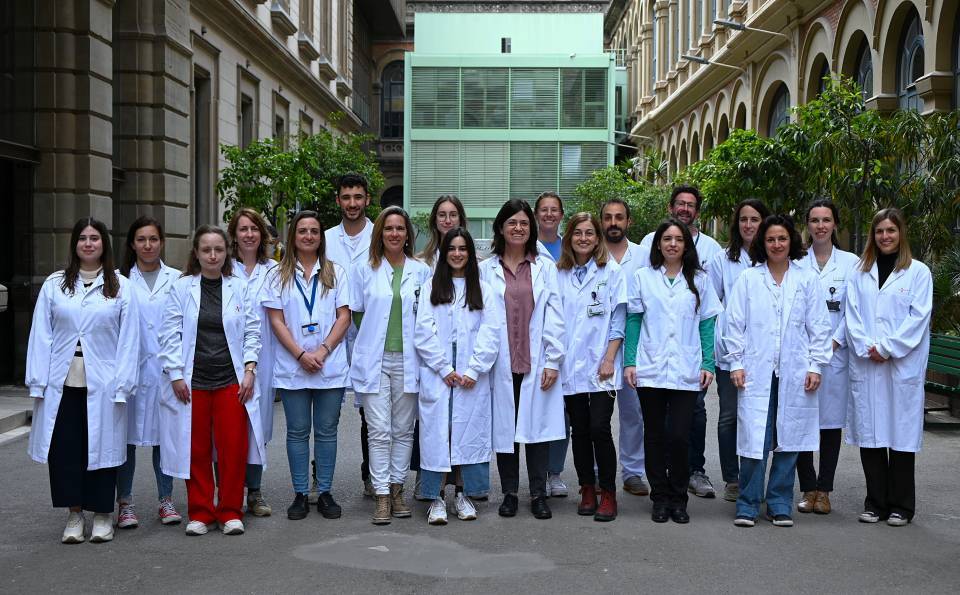Frequently Asked Questions about Inflamatory Bowel Disease
What’s wrong with me?
Inflammatory bowel disease is a chronic disease that, due to unknown causes, produces inflammation in the wall of the gastrointestinal tract. Inflammatory bowel disease basically encompasses two conditions: ulcerative colitis and Crohn’s disease.
In ulcerative colitis, inflammation starts in the rectum and can progress continuously along the length of the large intestine (colon); this inflammation affects only the innermost lining of the intestinal mucosa.
In Crohn’s disease, inflammation can affect any section of the gastrointestinal tract, from the mouth to the anus; it affects all layers of the intestinal wall (transmural).
Inflammatory bowel disease courses with remission periods (symptoms diminish or disappear) and flare-ups (reactivation of the disease’s symptoms). Symptoms vary and depend on the diagnosis (Crohn’s disease versus ulcerative colitis), and the location, extension and severity of inflammation.
Some of the more common symptoms are diarrhoea (with or without blood), abdominal pain, faecal urgency, faecal incontinence, fever and weight loss.
If you notice symptoms that suggest a flare-up (moderate/intense abdominal pain, diarrhoea that cannot be controlled with the usual treatment, blood in stools, fever, weight loss, nausea and vomiting lasting more than 48 hours), then you should contact your reference nurse or doctor so you may receive appropriate, early treatment and medical advice.
Once the flare-up has been confirmed, and depending on the type of disease, area affected and severity of the lesions, the nursing staff, in collaboration with the doctor, may tell you to follow some instructions with respect to modifying the dose, adding a new treatment or organising additional examinations and/or appointments.
The incidence of inflammatory bowel disease in Spain, although it is difficult to establish an exact figure, is estimated to be around 87–110 cases/100,000 people/year. Ulcerative colitis occurs more frequently.
Regarding gender, the frequency in men and women is similar. The disease generally predominates in developed countries and in Caucasians, particularly among the Jewish population. It can manifest at any age, but in the majority of cases it is diagnosed in people aged 20 to 30 years.
There is no straightforward explanation. Some people develop inflammatory bowel disease and we don’t know the reasons why. However there are data, based on scientific evidence, that indicate the interaction of different factors could represent the perfect combination for Inflammatory bowel disease to develop.
MISSING TRANSLATION
Taking into account that the disease is multifactorial, it cannot be considered hereditary, although there are genetic factors that play a part in its development.
Familial aggregation exists, i.e., there is a greater risk of developing inflammatory bowel disease in families that already contain affected individuals.
First-degree relatives (parents, children and siblings) have a 3.6% risk of developing the disease if one of their parents already has it. However, the risk increases to 20% if both parents are affected by Inflammatory bowel disease.
What tests will I undergo?
Several symptoms of inflammatory bowel disease are similar to other acute or chronic processes. For example, bacterial, viral or parasitic infections, consumption of anti-inflammatories (e.g., ibuprofen), and irritable bowel syndrome can all produce symptoms that are practically the same as those of Crohn’s disease or ulcerative colitis. This is why on some occasions it may seem like a long journey before inflammatory bowel disease is diagnosed.
It is very important to determine the location and severity of lesions so that the doctor can prescribe the most appropriate treatment.
A colonoscopy with a biopsy is the first choice test as it provides a direct view of the large intestine and also, if necessary, the final section of the small intestine (terminal ileum).
Imaging tests, e.g., MRI, computed tomography (CT), ultrasound and X-rays, help assess any complications, complete the study of the disease’s extension and evaluate the response to treatments.
Biological tests, such as blood analyses, are used to assess parameters that reveal the presence of inflammation.
What treatments are available?
The treatment chosen for each patient depends on the type of disease (whether Crohn’s disease or ulcerative colitis), location, degree of inflammatory activity (mild, moderate, severe), age, prior course of the disease, the patient’s prior response to medications and their needs.
Treatment can be chosen freely and is personalised. There are two types of treatment: one is used during flare-ups, to control the symptoms and prevent complications; the other is a maintenance treatment, used to keep the disease inactive and prevent the reappearance of symptoms or flare-ups.
A lack of adherence to your treatment not only has an impact on its success, but it can also lead to the appearance of complications and increase costs.
Living with Inflammatory Bowel Disease
The disease can affect other areas of the body that are unrelated to the digestive tract, e.g., joints, eyes and skin. Joint pain is the most common symptom.
Smoking is an environmental factor associated with a greater risk of developing Crohn’s disease and the habit has a negative impact on the condition’s evolution. Contrastingly, smoking is associated with a smaller risk in ulcerative colitis and has a protective effect against the appearance of symptoms.
Non-steroidal anti-inflammatories (NSAIDs) are not contraindicated, particularly for short periods and at low doses, but it is worth mentioning that 20–25% of patients are sensitive to these medicines and present flare-ups associated with their use.
Gastroenteritis can trigger the disease and the appearance of a flare-up.
Recommendations are to follow a balanced diet to avoid nutritional deficiencies. In specific cases, patients are recommended to follow diets adapted by nutritionists, e.g., for nutritional deficiencies, abdominal discomfort (abdominal bloating and pain, diarrhoea, vomiting), intestinal stenosis (narrowing) in patients with Crohn’s disease, and during the post-operative period following intestinal surgery.
Patients are advised to perform regular exercise in order to reduce both calcium loss from bones and the risk of fractures.
TRANSLATION MISSING.
There is no evidence to suggest that stress can cause the disease or trigger a flare-up, but some events that exacerbate the disease have been associated with periods of increased stress. Stress can be caused by several motives and so it should be approached differently for each person and occasion. Establishing suitable rest routines, practising relaxation techniques or yoga, or receiving massages can help combat stress.
When somebody is diagnosed with a chronic disease every aspect of their life (physical, psychological, family, occupational and social) is affected to some degree or other. Patients must understand their disease, get involved in their own care and work with the healthcare team so they may best learn to live with the condition.
Fatigue can affect patients with inflammatory bowel disease during remission periods and increases during aggravated periods of the illness. It is more common in Crohn’s disease than in ulcerative colitis. Fatigue can be connected to iron deficiency (anaemia) or other nutritional deficiencies, mood disorders (anxiety and depression), unrefreshing sleep, medication, stress, etc.
Some strategies for coping with fatigue include: brief naps during the day, less nightshifts, practise regular, low-intensity exercise, ensure you get refreshing sleep at night, maintain a balanced diet and a good level of oral hydration.
Patients with long-term inflammatory bowel disease have a greater risk of developing colorectal cancer (CRC) than the general population. Sustained chronic inflammation and a family history of CRC are both contributing factors to an increased risk.
From 8–10 years after diagnosis the risk increases and therefore patients should undergo a colonoscopy for early detection of potentially carcinogenic cells. Your doctor will advise you when they should undergo a colonoscopy and the frequency of future examinations based on the duration of the illness, its extension, your family history and other associated diseases, such as primary sclerosing cholangitis.
Fertility is not generally affected in patients with inflammatory bowel disease and you can still become pregnant.
The best time to conceive is when the illness is “inactive”, in fact recommendations state it should be inactive for at least three months.
If the disease is in remission at the time of conception, then it is more than likely it will stay in remission throughout the whole pregnancy and everything will run smoothly for both the mother and the foetus.
If you fall pregnant during a flare-up it will increase the risk of premature birth or miscarriage.
It may prove difficult to control the disease and it could remain active throughout the pregnancy or it may even worsen, particularly in the first trimester.
There is no apparent reason to limit patients’ travel to just developing countries. However, patients receiving immunosuppressive therapy are told they should not travel to areas where yellow fever is endemic because the yellow fever vaccination is contraindicated under such circumstances.
A medical appointment at a Traveller’s Assistance Centre and vaccinations prior to the journey are essential for minimising the risks of contracting an infectious disease.
Stepping up hygiene measures during the trip helps prevent intestinal infections (traveller’s diarrhoea) which can trigger a flare-up.
Resources and support.
Looking to the future
Recently, having demonstrated its efficacy in clinical trials for the treatment of ulcerative colitis and Crohn’s disease, a new medication (vedolizumab) has been approved as a therapy for inflammatory bowel disease. Vedolizumab is a molecule belonging to the therapeutic drug group known as biologics and provides, as a main advantage over other available medicines, a more specific action in the colon, which means it is more effective.
There are currently several clinical trials evaluating new drugs for the treatment of inflammatory bowel disease and with different therapeutic targets to those already available. Of all the new drugs being scrutinised, the most promising are ustekinumab, risankizumab and tofacitinib. Each has a different action mechanism and so far researchers have reported positive results for all of them.
Substantiated information by:


Published: 20 February 2018
Updated: 7 May 2025
Subscribe
Receive the latest updates related to this content.
Thank you for subscribing!
If this is the first time you subscribe you will receive a confirmation email, check your inbox


